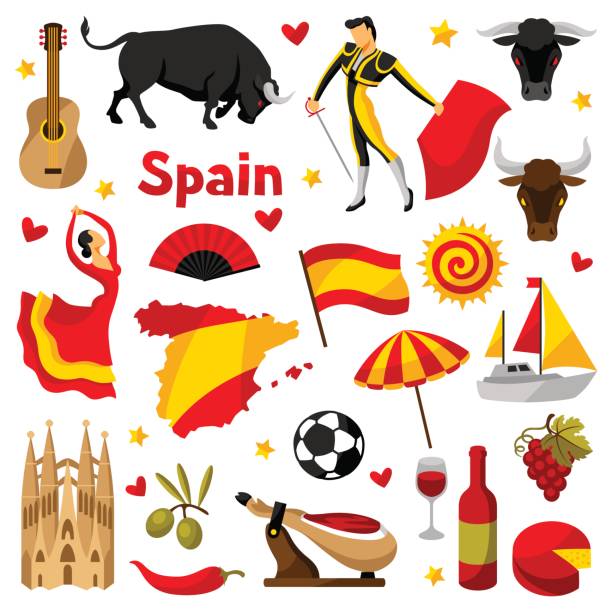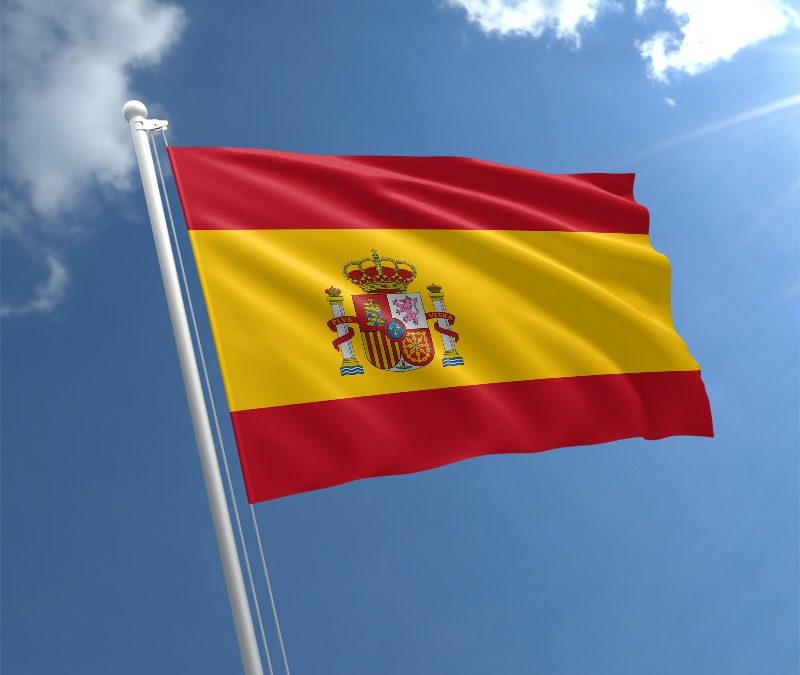The Kingdom of Spain, is a country located in Southwestern Europe, with parts of its territory in the Atlantic Ocean, The Mediterranean Sea, and Africa. It is the largest country in Southern Europe and the fourth most populous European member. Spain also includes the Balearic Islands in the Mediterranean Sea, the Canary Islands in the Atlantic Ocean and two autonomous cities , Ceuta and Melilla and three other areas : Penon de Velez de la Gomera, Alhucemas Islands and Chafarinas Islands in Africa.
Spain occupies about 82% of the Iberian Peninsula with rather mountainous land mass, dominated by high plateaus and mountain chains and occupies an area of 195, 124 square miles. About 49 million people live in Spain and its capital city, Madrid is the largest occupied area.
This Southwestern European nation has had its share of changing hand politically. In its early years, the Iberian Peninsula was inhabited by Celtic and Iberian tribes. Then there was the Roman conquest of the Iberian Peninsula and the province of Hispania was established. This was followed by the Romanization and Christianization of Hispania. Then there was the fall of the Western Roman Empire and migration of tribes from Central Europe. There was a period of the Francoist dictatorship that lasted until 1975. After democracy was restored , Spain joined the European Union. The country then experienced an economic boom that made it a major player in Europe. Some outstanding feature of Spain's culture is its impact in both Europe and other western societies. Spanish art, literature, architecture, music, poetry, paintings, and cuisine have extended even beyond the west.
Spain is now a unitary parliamentary, constitutional monarchy. It also has a prime minister, president of the congress, president of the senate, upper house and lower house. Its official language is Spanish with 87.1% Spanish occupants and the remainder classified as foreigners. Fifty-six percent identify themselves as Roman Catholics, 14.9% Atheist, 12.6% Agnostic, 12.3% indifferent or no religion, 2.7% other religion and 1.5% uncertain.
The Spanish economy is based on services, light and heavy industries, and agriculture. Mineral resources include, iron ore, mercury, and, coal. Spain's GDP stands at 2.4 trillion USD.
Spain occupies about 82% of the Iberian Peninsula with rather mountainous land mass, dominated by high plateaus and mountain chains and occupies an area of 195, 124 square miles. About 49 million people live in Spain and its capital city, Madrid is the largest occupied area.
This Southwestern European nation has had its share of changing hand politically. In its early years, the Iberian Peninsula was inhabited by Celtic and Iberian tribes. Then there was the Roman conquest of the Iberian Peninsula and the province of Hispania was established. This was followed by the Romanization and Christianization of Hispania. Then there was the fall of the Western Roman Empire and migration of tribes from Central Europe. There was a period of the Francoist dictatorship that lasted until 1975. After democracy was restored , Spain joined the European Union. The country then experienced an economic boom that made it a major player in Europe. Some outstanding feature of Spain's culture is its impact in both Europe and other western societies. Spanish art, literature, architecture, music, poetry, paintings, and cuisine have extended even beyond the west.
Spain is now a unitary parliamentary, constitutional monarchy. It also has a prime minister, president of the congress, president of the senate, upper house and lower house. Its official language is Spanish with 87.1% Spanish occupants and the remainder classified as foreigners. Fifty-six percent identify themselves as Roman Catholics, 14.9% Atheist, 12.6% Agnostic, 12.3% indifferent or no religion, 2.7% other religion and 1.5% uncertain.
The Spanish economy is based on services, light and heavy industries, and agriculture. Mineral resources include, iron ore, mercury, and, coal. Spain's GDP stands at 2.4 trillion USD.

